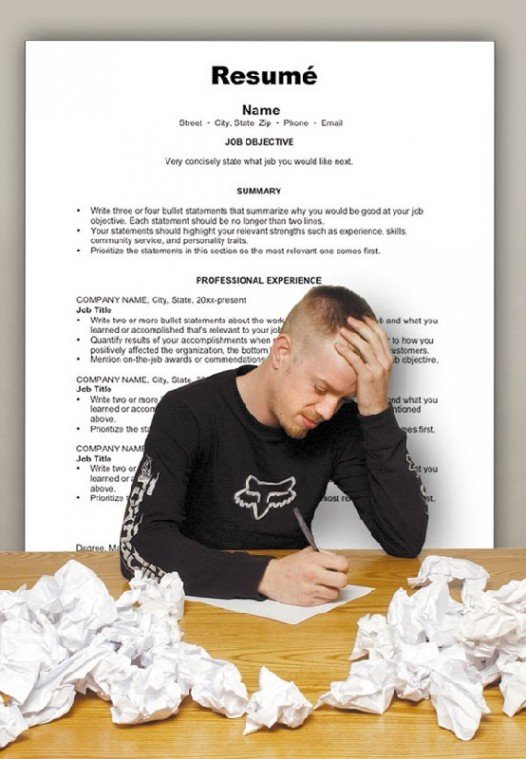If you’re searching for a job but having no luck, the problem
might be your resume. Here are some tips to make potential
employers take notice of what you have to offer
Listing “domestic goddess” as work experience on a resume is not a good idea. Neither is inserting pictures of your children or pets, dotting “i”s with hearts or using other “cutsie” gimmicks.
When it comes to writing a solid resume, the key is to create a good first impression at a glance and provide quality content.
“Typos, improper grammar, ‘domestic goddess,’ – we’ve seen it,” said Debi Murray, director of sales at Morgan Hill’s Garnett Staffing, an employment agency. “People think the cutsie stuff is funny, but employers don’t think it’s funny. And if they don’t like it, that’s the end of the line for a resume.”
No Second Chances at First Impressions
Legibility and a reader-friendly format make for a good resume, said Mario Coronado, a staffing specialist at Manpower Staffing Services in Gilroy, another employment agency. If a resume looks like a list or is just plain unattractive, it likely won’t get far, he said.
“We’ve even had people turn in hand-written resumes,” Coronado said. “We don’t even look at those.”
The impression a resume gives at first glance makes a difference, agreed Gerard Buan, employment services specialist at San Benito Bank in Hollister.
“A resume should be on nice paper, and it should look good,” he said. “We’ve had people who made a mistake folding their resume when putting it in an envelope, so they tried to smooth it out and refold it, and there are crease marks all over the place. That’s not good.”
There are debates on job resource Web sites, such as www.monster.com, about whether to keep resumes on one page or if it’s OK to spill over onto a second page. The general consensus says it’s best to stick to one page, so additional pages might get a resume scrapped immediately at some companies.
Get to The Good Stuff
Once a resume passes the first-impression hurdle, employers look at content. The number one thing a resume should show is stability, said both Murray and Buan.
“If someone’s been here for a few months, there for a few months, we call that job hopping,” Murray said. “Job hopping scares off employers. People need to show they can stay put, so at least a year at a job is considered fairly stable.”
A solid job objective is also an important resume element.
“A strong objective should definitely come first, and the objective should pertain to the job the person is applying for,” Coronado said. “We’ve had people apply for a receptionist position, but they put janitorial work in their objective. It didn’t make sense.”
While the objective should be present, be careful in phrasing it, Murray said.
“People probably need to keep (the objectives) vague,” she explained. “If it’s too specific, you can lose out on an interview, even if you’re actually open to other opportunities. Your objective should involve utilizing your skills and experience.”
Also, be sure to edit the work experience section of a resume if you have many years of experience.
“Show what you’ve done for the last five years, seven years tops,” Murray said. “Longer than that, and, frankly, no one cares.”
The education portion of a resume is not necessarily the most important part. Though Buan said his company looks at education, Coronado said a lack of formal education can be compensated for with plenty of experience.
To Cover Letter or Not To Cover Letter
Write a cover letter, but know that it may never be read by anyone other than you.
Cover letters are facing obsoletion; Coronado and Murray said employers using their staffing companies almost never ask to see a cover letter. Most of the time, Buan’s company doesn’t pay much attention to cover letters, but in some instances, they can make all the difference.
“If it comes down to two candidates and everything is pretty much equal, we’ll see if they wrote cover letters,” he said. “If one of the candidates wrote a cover letter and one didn’t, the one that wrote the letter will probably get called in for an interview first. It makes a good impression and probably gives a little bit of an advantage.”
In all fairness, the physical resume itself is heading for the endangered-species list.
“We almost never get a resume on paper because we have people submit their information electronically,” said Buan, whose company uses online forms for job-recruitment purposes. “Online applications are the trend nowadays. It’s faster and easier. But it’s still kind of nice when you get one in your hand instead of on the computer.”
Have Your People Call My People
Forget character references. Employers don’t care what your best friend’s mother thinks of your work ethic; they care about the opinions of your former employers. By listing professional references at the bottom of a resume instead of character references or the glib phrase, “references available upon request,” a candidate can actually get ahead in the game, Coronado said.
Having the reference and their contact information on a resume means an employer doesn’t have to call the candidate for the information and then call the reference. One step in the process is eliminated, so a potential employer is talking to your former boss and perhaps considering interviewing you. In the meantime, the employer might still be waiting to get contact information for another candidate’s references.
Make sure the contact information for both you and your references is updated and accurate on your resume. An employer can’t offer you a job if they can’t reach you.
Happy job hunting.












